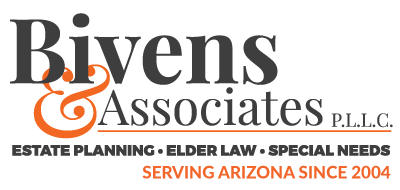Why Is the Bank Not Honoring My Power of Attorney?
So you have in your hand a perfectly valid financial power of attorney that your parent, spouse or other relative signed to allow you to handle their financial matters. The time comes when they need your help, so you present the power of attorney to the bank or brokerage firm only to be told they will not honor it. Of late, some financial institutions are insisting that the account owner sign the institution’s own power of attorney form. This is, of course, problematic when the older account owner may not then be competent to sign legal forms. In fact, that is why you are now trying to use your power of attorney in the first place. A recent article in the New York Times, “Finding Out Your Power of Attorney is Powerless” highlighted frustrations caused by this illogical catch-22.
 We have seen this problem increase in our practice over the last few years. Two years ago I had an elderly client execute a financial power of attorney naming her son as her Agent. When she fell ill, the son took that document to her bank so he could pay her bills only to have the bank demand she come in person to the bank and sign the bank’s form power of attorney. The bank refused to honor the valid financial power of attorney. The distressed son called us for help because his then 90+ year old mother was incapacitated and bed-ridden in a skilled nursing facility. Despite having been advised of her incapacity, the bank insisted she would have to come in which was obviously impossible. After much to-do (and legal fees) we negotiated a way to work around the issue and got the bank to honor the financial power of attorney. If they would not, the son would have needed to seek Conservatorship over his mother through court to gain access to the account(s), which would have cost even more in legal fees.
We have seen this problem increase in our practice over the last few years. Two years ago I had an elderly client execute a financial power of attorney naming her son as her Agent. When she fell ill, the son took that document to her bank so he could pay her bills only to have the bank demand she come in person to the bank and sign the bank’s form power of attorney. The bank refused to honor the valid financial power of attorney. The distressed son called us for help because his then 90+ year old mother was incapacitated and bed-ridden in a skilled nursing facility. Despite having been advised of her incapacity, the bank insisted she would have to come in which was obviously impossible. After much to-do (and legal fees) we negotiated a way to work around the issue and got the bank to honor the financial power of attorney. If they would not, the son would have needed to seek Conservatorship over his mother through court to gain access to the account(s), which would have cost even more in legal fees.
So, why are we held hostage to the apparent whims of the financial institutions? Why don’t they have to honor an apparent valid financial power of attorney? The answer is that in Arizona there is no statute requiring a financial institution to honor a financial power of attorney. The result is that every financial institution seems to have its own standards by which it will honor a financial power of attorney and they seem to prefer use of their own forms. Does that mean you don’t need to have a standard financial power of attorney? No. The institution’s power of attorney form only works at that institution! It will not allow for management of affairs or financial matters outside that financial institution, such as filing tax returns, buying or selling real estate, managing accounts at other banks, etc.
What can you do to better ensure the financial power of attorney will work? Here are some suggestions:
- If the financial power of attorney will become effective upon the incapacity of the principal and therefore has not been presented and honored for use and is more than three years old, a new, updated power of attorney should be signed. Financial institutions give more “push-back” to older documents.
- If the financial power of attorney is effective immediately you can be proactive and present it to be honored by the financial institution while the principal is still able to sign legal documents so that if required, the principal can sign the financial institution’s form. You will need to do this at every financial institution holding the principal’s accounts.
- Consider use of a Revocable Trust. In my experience, financial institutions readily work with Trustees and do not present this same “push-back” in honoring a Successor Trustee’s authority over Trust accounts. Of course, all accounts must be titled to the Trust. If you and Mom are jointly managing her accounts, she can designate you as a Co-Trustee with her so you can work jointly or independently, however desired. If Mom is not ready to grant you control, she can simply designate you as a Successor Trustee to take over in the event she cannot manage her financial matters at some point, either due to incapacity or death. Trusts are also useful tools to avoid probate. Note, even if Mom has a Trust she should also have a financial power of attorney in effect to allow for management of ancillary non-trust financial matters in the event of her incapacity!
If you need elder law legal counsel or if you’d like to set up a power of attorney, please get in touch with Bivens and Associates – your Arizona elder law firm. You can learn more about our elder law services here.
